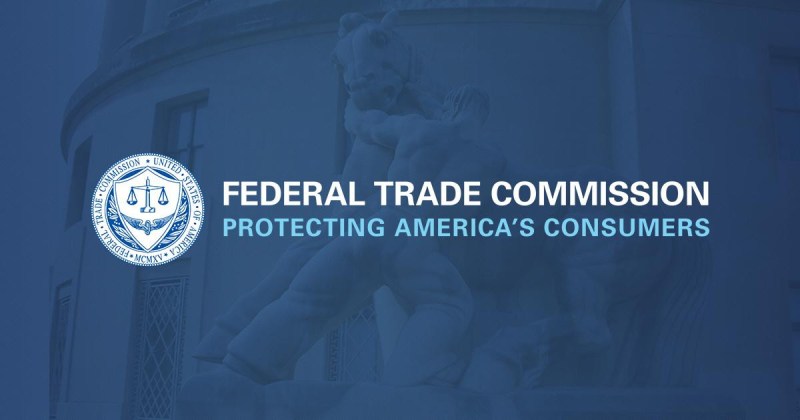If you’ve ever had to suffer through a call tree and a 9,000 hour wait on hold to cancel a subscription, we have good news for you if you live in the United States. The Federal Trade Commission (FTC) has just finalized a rule that will “make it as easy for consumers to cancel their enrollment as it was to sign up.”
The announcement of the proposed rule came in March 2023 and was followed up by 16,000 comments from the public. Complaints to the agency about negative option and recurring subscription services have been rising from 42 per day in 2021 to 70 per day in 2024.
Commission Chair Lina M. Khan says, “The FTC’s rule will end these tricks and traps, saving Americans time and money. Nobody should be stuck paying for a service they no longer want.”
The rule will take effect 180 days after entering the Federal Register. If you’re curious about other ways we can hold tech companies accountable, Cory Doctorow has some ideas.

















And now the EU… Should be exactly like that. Sale line picks up witin 1 second so the support line. Sale line connects you to person so the support line. Similar for online service 1 click to buy – 1 click to resign
That would make life easier for EU citizens, so don’t count on it.
Or at least ban companies from giving us the “your call is important to us” BS. If they meant it they’d answer the damn phone.
… and then it terminates in Bangalore….
I tend to favor less restrictions on business, but this is a good rule that ends deceptive and predatory tactics.
This is what Apple have been offering for in-app subscriptions, which is why Apple users prefer to buy in-app subscriptions. All your subscriptions listed clearly in one place, with clear info on price and renewal dates, and a quick and reliable cancel.
Whilst companies have been complaining about Apple taking a fee for subscriptions, the easy cancel option is probably what hurts them most.
This is a great bit of legislation, and just the type of thing the EU should be doing, instead of the stupid stuff they are doing. And hopefully the law is clear about what constitutes an easy cancel, so there’s no EU-style crap over companies complying with the law but still being fined because the law didn’t say what they meant it to.
Yes, as an Apple user, I really like their subscription management. So easy to see and cancel. It is so good that it must be hurting businesses :D
Also you can cancel things way before the actual subscription ends and still it to the last day.
It isn’t new legislation. It isn’t legislation at all.
The FTC sets rules that businesses must comply with. There’s a law (https://www.govinfo.gov/content/pkg/USCODE-2023-title15/pdf/USCODE-2023-title15-chap2-subchapI-sec41.pdf) that establishes the FTC and sets its responsibilities and its powers. The law establishing the FTC came from the legisilative branch (Congress.) The FTC itself is part of the executive branch of the US government.
The FTC has updated an existing rule from 1973. (https://www.ecfr.gov/current/title-16/chapter-I/subchapter-D/part-425)
This is, at its base, an executive function, not a legislative function. For good or ill (as you may see it,) this rule can be attributed to the executive branch of the US government (AKA: the president.)
Your response is profoundly insightful. Thank you so much for your comment. Eye opening realization for me and I’m sure a lot of other readers. Quoting and sharing your resources provide for quite the interesting read. Thank you so much.
Good point about the weird way the US government works. It’s honestly rather shocking how poorly defined the powers of the executive branch are. For non-Americans reading. The are 3 branches which are supposed to “check” the power of each other. 1/3 of it is the executive branch, which is under the direct control of the president. The outward facing part is clear enough. The president commands the military and conducts international diplomacy; but the internal part is crazy. It’s basically just “whatever is not delegated elsewhere”. Who would have thought that that might be exploited??
The powers of the three branches of the US government are not “poorly defined.” They are laid out in the constitution of the US in articles I, II, and III.
Short form:
I. Legislative branch to make laws and remove laws.
II. Executive branch to see that laws are carried out.
III. Judicial branch to see that laws adhere to the constitution and that the executive is not overreaching.
It is not “whatever is not delegated elsewhere.”
If you are interested, you can read the articles of the Constitution here:
https://www.senate.gov/about/origins-foundations/senate-and-constitution/constitution.htm#a2
Just to add, the Legislative branch has the power of the purse and to declare war.
Although the latter has been weakened in recent decades.
And then de facto, the legislative branch is paralyzed and the judicial branch legislates with new and innovative readings of the constitution
The problem is not that the powers of the Executive Branch are poorly defined. The problem, IMO, is that Congress keeps giving more power to the Executive Branch.
This is roughly how it works everywhere – the legislature sets the broad parameters of regulation, and the details are filled in by civil servants. Usually (as in the US), top civil servants like Lina Khan have quite a bit of autonomy, and the main way elected politicians actually affect regulation is by choosing the people in those top roles.
US voters should be aware that Khan has been doing an abnormally good job on behalf of normal people, and that both main parties are leaning towards removing her for that reason (donors don’t like it when business is actually regulated).
So, give me an example of “EU-style crap over companies complying with the law but still being fined because the law didn’t say what they meant it to”.
EU bad, haven’t you heard?
As an American, I don’t see the EU as bad; the European Parliament on the other hand…
B^)
subscription and cancelling of WHAT exactly ? newsletter ? phone contract ? house insurance ?
every try to cancel your isp to move to another. Last time i tried to and I was not even under a contract i had to resort to telling them I was moving to another country before they would cancel and even then they wanted to put me into some strange thing where i was still paying monthly until i “came back” and could start up their service again.
Yeah this is needed.
Do yourself a favor and look up Yahoo’s web hosting history (my own sad tale of woe). Or Amazon Prime, Spotify, multiple newspapers, SiriusXM, HelloFresh, and others. You could have done that yourself before posting.
A simple solution would just be to have re-occurring payment authorizations listed by your bank or credit card. Then you can simply turn off the authorization if the business makes canceling too hard. Now that I’m thinking about it, why can’t you already do this???
I’m constantly surprised at just how little power I have over my accounts. For instance, if i want my credit card company to text me for approval every time it sees a charge on my card or I simply want to disable the card for a while?
I do have one card that has an app with it where I can enable the card from the app, make my charge, then disable it right after. Never had fraud on that card. It’s brilliant. But it’s a pre-pay and every time I try to transfer money to it from my regular bank the bank blocks the transaction.
Nowadays companies are trying to attach directly to your bank account. Terrible idea since you don’t have any of the protections of a credit card (correct me if I’m wrong) but why can’t I just ask my bank to text me to get approval of all outgoing EFT’s every time?
I think I even have an app on my phone from my current bank, so they know how to do that part.
And it’s getting worse – now there’s a feature where your automatic charges follow you even if you cancel a card. As soon as you get a new card the charges automatically switch over. Probably there’s no opt-out.
“(correct me if I’m wrong)”
You’re not wrong.
I have reserved bank accounts for this that have no overdraft facility and I don’t hold much of a balance in them, unless they are just about to pay out, when I transfer some in.
My bank has this. Really useful to get an overview, and only had to use it to cancel something once.
“Click to cancel” a subscription?
I live in the EU myself, but from what I understand you have to pay in advance for subscription to magazines (If those paper stacks still exist) in the US, and if you don’t pay, they just stop sending you magazines after a while. I always found that system much better then here in the Netherlands. Here they just keep on sending you magazines, and if you don’t pay, well, then all hell breaks loose. You’ll probably get a visit from a bailiff / debt collector (I’m not sure of the exact right term here) after a while.
But as usual, the big companies are lobbying in politics, while for individual consumers this is not a realistic option.
And there are other weird things here in the Netherlands. Here it is common to give third parties the right to take money from your bank account. You do not have to do anything to pay your rent or other recurring bills, they just take the money from your bank account. You can stop this, and even get your money back within a short period (I think two weeks) if you take action. It makes paying for all the chores extremely easy, but the whole system is still backwards. There is also a parallel system in which you can make regular money transfers of fixed amounts on set dates (intervals), but I’m not sure how much use is being made of that. There’s always something to complain I guess.
Here in Austria it’s easy to cancel subscriptions and memberships. There’s a nonprofit website which does the heavy lifting: https://www.online-kuendigen.at/ . Experience has shown that companies will accept cancellations sent that way practically immediately without making much fuss, even if their TOS states a different procedure.
Similar services exist in most EU member states.
btw: SEPA direct debit transactions can be cancelled within 8 weeks. If the transaction was not properly authorized, that period extends to 13 months.
The Netherlands has very strange attitudes to credit, I remember being refused in a shop when I proffered a credit card. But charge cards were OK? I had to get cash out instead.
It’s all about the fees the card companies want from the shop, usually >1% for credit cards. Debit card fees are much lower, sometimes <0.2% or even included in card terminal rental fees.
Also known as Hackaday comment system 😂